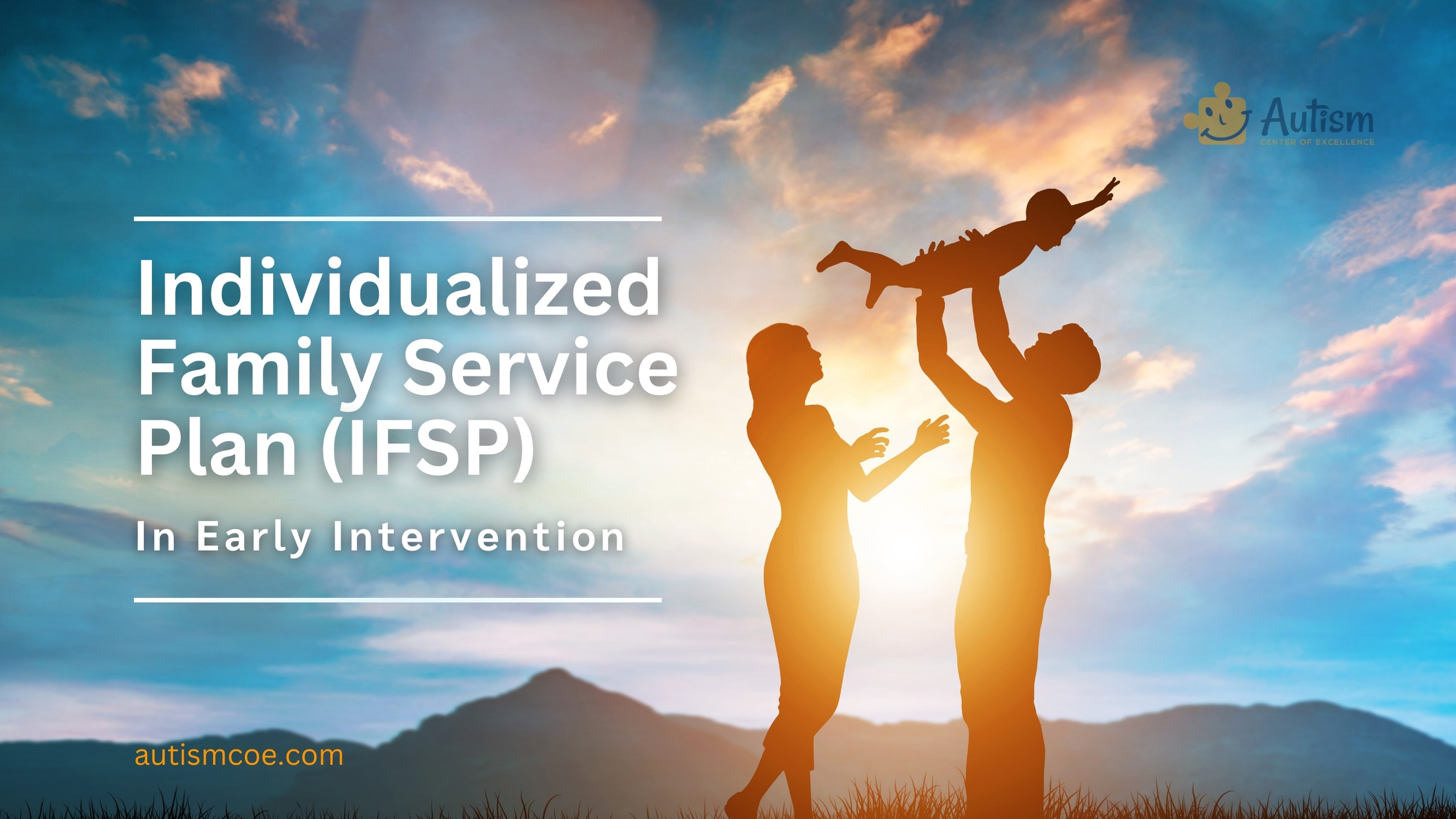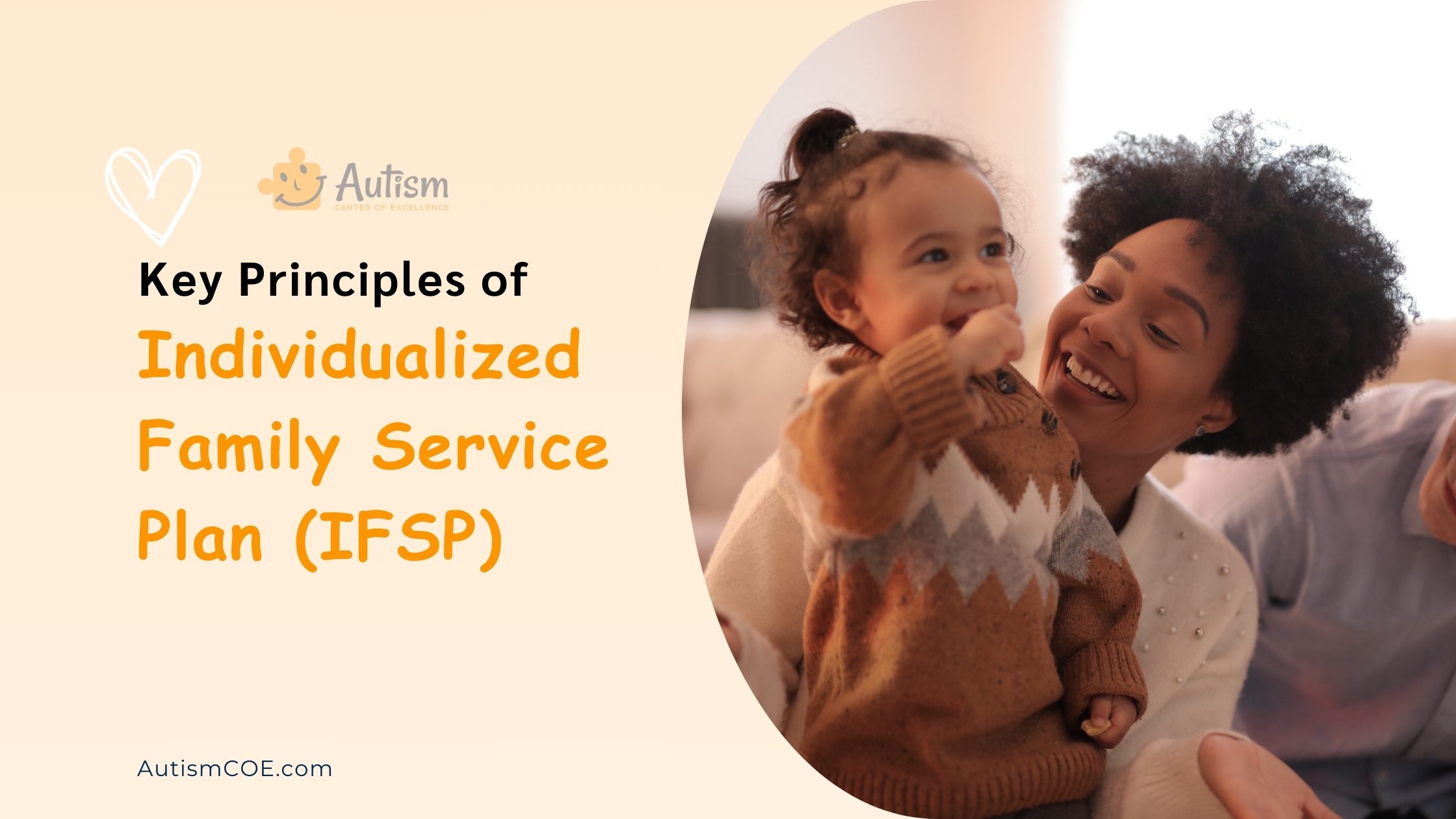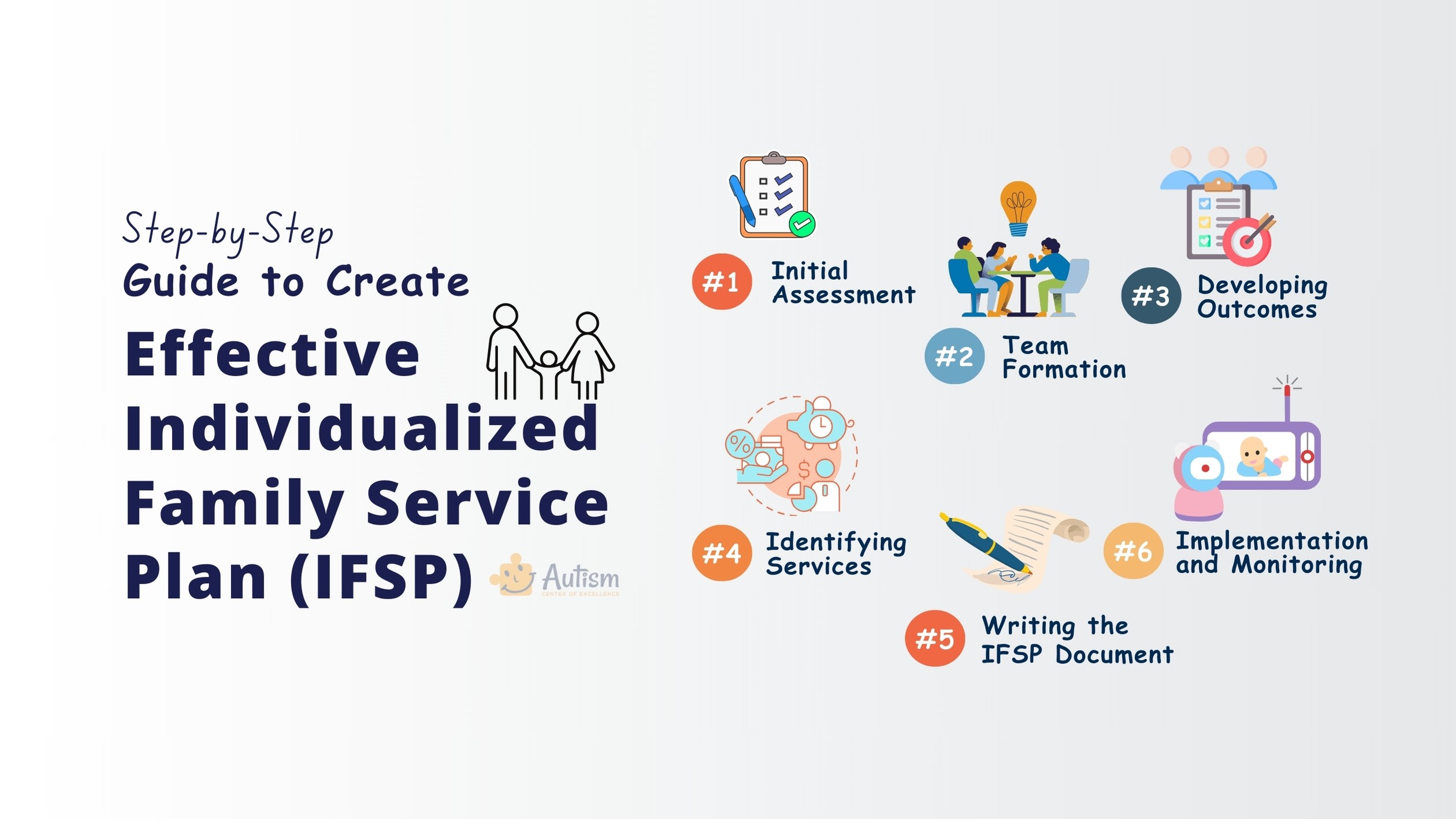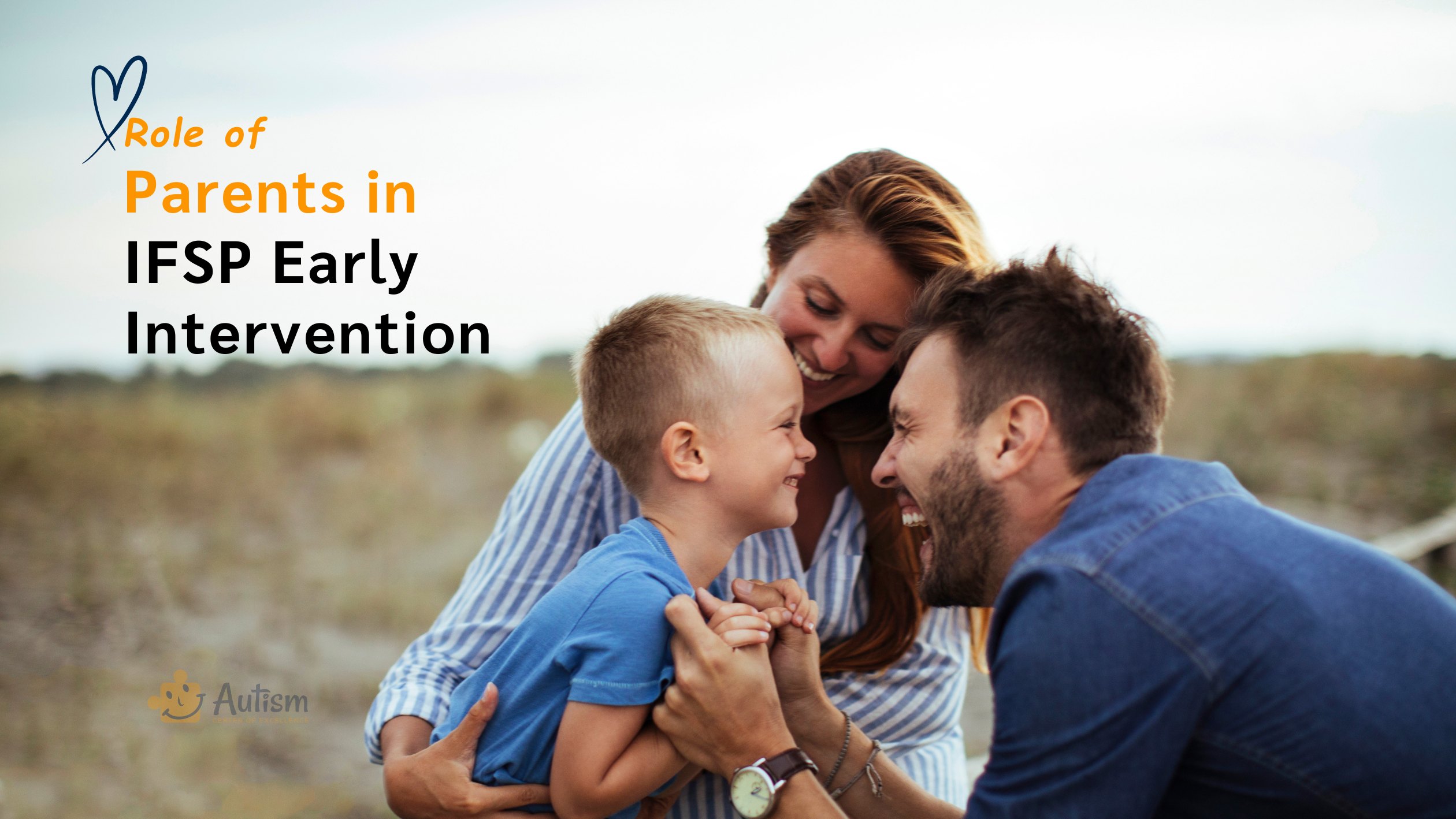Unit 20: Individualized Family Service Plan (IFSP) in Early Intervention

The Individualized Family Service Plan (IFSP) is a significant component of the practices that cater to the customized services of Children with Developmental Delays or disabilities (from the ages of birth to three). IFSP is not just a document but is a collaborative process in which parents, professionals, and the child are involved. The blog is dedicated to talking about how the IFSP is formed, the process of revolutionizing it, the functions that parents play, and many more. The IFSP could be either a parent or guardian of a child a caregiver or a professional engaged in Early Intervention. Thus, this guide is a means of ensuring quality education for the child begins at the earliest stages of life.
What is an IFSP?
An Individualized Family Service Plan, often abbreviated as IFSP, is a family-oriented plan-in-motion created for special-needs children with the purpose of promoting their growth and development. It is of core importance to EI Approaches targeted at children aged 0-3 years, who are diagnosed with developmental difficulties. The IFSP may be referred to as a written document but in fact; it is a process that involves evaluating the child’s developmental needs, establishing goals, developing intervention plans, and reviewing them regularly.
The IFSP is distinct as it is based on the specific needs of the child and their family. It instead focuses on strengthening parents’ abilities to bring a developmental stimulus to their children during their everyday chores and routines. The plan entails family background, tools and resources, the goals to be achieved, the services the child will receive and a strategy of transferring the care during transitions like when the child turns three. The IFSP is the result of the joint planning process with the participation of the family members from the concerned disciplines.

What are the Key Principles of an IFSP?
The general provisions of an Individualized Family Service Plan (IFSP) are directed toward considering the child’s unique needs and strengths as well as the family’s characteristics. Here are the primary tenets:
Family-Centered
IFSP considers family as another source of stability in a child’s life. In this regard, the family’s interests, values, and opinions matter to the child and hence prioritized as well. The family members are viewed as part of the core of the planning team, as well as a group that is both expected and encouraged to participate in the process at all stages of the IFSP process.
Collaborative
In the process of creating an IFSP, there is a teamwork of parent, caregiver, and a group of professionals from diverse sectors. This approach involves the integration of multiple areas hence meeting all developmental demands for the child and the family needs are addressed.
Individualized
The plan is customized to the child and the family’s specific requirements. In the assessment, it introduces the child’s core skills, examples of daily activities the child does, and their interests. Additionally, the assessment can pinpoint the family’s concerns and broaden the choices offered in the plan of how the child can develop.
Coordinated
Services provided by the programs, as stated in the IFSP, are focused and coordinated within and across various agencies and different service providers to offer all-encompassing, integrated support.
Natural Environments
Services can take place in the child’s home, a place of learning, or an area for recreation depending on the child’s and the family’s environment. These can be colonial, oppressive, or Community-Based Settings.
Outcome-Oriented
The IFSP is composed of the specified objectives that are to be achieved within a specified time frame. All the outcomes are tracked and adjusted regularly to keep the plan relevant and operational, which becomes needed as the child is growing up.
Transition Planning
The IFSP plan addresses a process of transitioning the child to Preschool (Pre-K), School Readiness, or any other appropriate programs at the time of the child attaining the age of three years. This will allow continuity of support while making the transition smoother for the child and family.
Join Our Weekly Newsletters!
Subscribe now to stay updated with our latest email updates.
Legal Framework and Regulations of IFSP in Early Intervention
As for the legal framework and rules of Individualized Family Service Plan (IFSP) in Early Intervention it is established in accordance with Part C of the Federal Individuals with Disabilities Education Act. This plays the role of the basic specified framework according to which the initiation of early intervention, special education, and related services are provided in the USA.
Under this law, each state is required to make sure that every child or toddler with a disability, and their family, get these services. The IFSP must be provided for developing, reviewing, and implementing it. It is crucial to point out that it is the IFSP team that determines that Early Intervention Services be provided outside of natural environments, not the lead agency or the EIS program itself.
On the other hand, the law requires for individual and group services or treatment to be provided as a prevention or compensation, or as a way to alleviate movement dysfunction and related functional problems. IFSP is the actual road map or baseline for family-centered early intervention services that adopt a holistic perspective to help the child in overall development alongside parental involvement.

How to Create an Effective IFSP
The process of creating an efficient Individualized Family Service Plan or IFSP is based on a sequence of steps whose main goal is to adapt the plan to the particular features of the child and the family.
Here is a Step-by-Step Guide to Creating an Effective IFSP
#1 Initial Assessment
- This aspect is initiated by getting a medical and psychological evaluation of the child where professionals assess the level of developmental functioning across multiple domains.
- Family resources, their preferences, and any concerns regarding the child’s development are also noted.
#2 Team Formation
- Put together a team of people that includes parents, Early Intervention Service Providers, and other relevant service providers.
- Invite those who have the skill or elders in the family who have a know-how about the child.
#3 Developing Outcomes
- According to the data obtained from the Initial Assessment, the team will develop program outcomes that will be functional and important to the child and their family.
- Put on the calendar activities like hiking, swimming, and jogging to share with the community members.
- The results must express certainty, be measurable, deliverable, pertinent, and in the time frame.
#4 Identifying Services
- Next, the team has to identify the early intervention programs that will bring them the best outcomes.
- This entails, for example, the determination of the approach, number, period, and level of services.
#5 Writing the IFSP Document
- The IFSP document should be written in a format that all team members can understand.
- It should contain the child’s current levels of development, family information, targets to be obtained, services being provided, and lastly a plan for when the child is three years old.
#6 Implementation and Monitoring
- After the development of the IFSP, it should be implemented as soon as possible.
- Periodic updates and revisions of the IFSP are fundamental in keeping it relevant and useful as the child changes and grows.
The IEP is not merely a document but a process that involves evaluation, planning, implementation, monitoring, and provision of revisions.

Role of Parents in IFSP Early Intervention
The Individualized Family Service Plan (IFSP) is a key aspect of the early intervention process in which parents make major contributions. Their participation is critical for putting the IFSP development and execution process into activities. Here are some key roles parents play:
Partners in Planning 📝
Parents work together with professionals to compose the IFSP. They contribute information about their child’s skills, needs, routines, and resources advocating on their own behalf.
Goal Setting 🎯
The IFSP needs to reflect the parents’ priorities for their child. They carry a lot of authority as they shape the results of the Early Intervention Services process to be achieved.
Service Selection ✅
Parents get involved in determining what Types of Early Intervention services their child will have access to, the frequency of these services, the location, and the time when they will be provided.
Rights and Responsibilities ✊
Parents have legal rights, which are covered by them at the beginning of the IFSP. Among others, these rights include the right to undertake or not a service, the right to confidentiality, and the right to appeal the team’s decisions if they disagree.
Implementation and Monitoring 📈
Parents are extremely involved in the process of implementing IFSP. Together they follow up with the service providers, and come up with Intervention Strategies to be used on a daily basis. In addition, they also take turns attending periodic reviews of the IFSP in order to ensure that the program continues to meet the client’s needs and objectives.
Advocacy ⚖️
Parents not only tend to a child’s requirements but also strive for their child’s rights in early intervention. They may receive many opportunities to consult, learn, and consider what is the best immersion experience for the participants.
This is to reiterate that the success of an IFSP largely depends on the major role and cooperation of parents in the entire process.
How is an IFSP Different from an IEP?
Individualized Family Service Plans (IFSP) and Individualized Educational Plans (IEP) are both legal documents designed to help a child who is eligible for special education or related services. However, they differ in several ways:
Age Range
The IFSP is for infants from zero to 3 years of age who have developmental delays or disabilities. An IEP, Individualized Education Program, is for children and youth who are between 3 and 21 of age and have disabilities, which need special education and related services.
Focus
The IFSP is more inclusive in that it does not limit its scope of influence to the child but extends planning to the family as well. This program aims to assist the family by offering different services and facilities that enhance the family’s capacity to meet the developmental needs of the children. On the other hand, an IEP takes into consideration the child’s educational needs and development the most.
Team Composition
While these two plans apply an integrated model, the IFSP team involves both the family and professionals from different fields. The IEP team includes the parents, educators, and other specialists working in the school environments.
Plan Review
The IFSP is reviewed two times every six months unless it is deemed necessary or it is evaluated once at the end of each year. The revised IEP (Individualized Education Plan) is reevaluated, as the parents or eventually, the school should request a review of it.
Service Provision
Under the IFSP, services are provided in a “natural environment” at the child’s home or in a setting where children with disabilities and children without disabilities come together to participate in programs. IEP is typically delivered in school, which is the primary location.
Frequently Asked Questions & Answer
Is an IFSP a Federal Document?
Yes, the IFSPs are federal documents guided by the Individuals with Disabilities Education Act (IDEA), part C. This call for states to have an IFSP for any child not exceeding three years of age whose developmental or physical dependencies qualify him or her to get early intervention services.
What Are the 5 Components of the IFSP?
The five key components of an IFSP include:
a. Information about the child at present, with their development in all areas.
b. The family’s economic resources, priorities, and concerns for the development of their child.
c. Measurable results or outcomes expected to be achieved for the child and family either directly or indirectly.
d. The exact services of early intervention that align with the distinct issues that the kid and family are struggling with.
e. The natural environment for delivering the services.
How Often Must an IFSP Be Reviewed?
Additionally, an IFSP should be reviewed at least once every six months, and at least one re-evaluation of the outcomes is needed every year to determine if the child makes progress as stated in their plan and if the outcomes and services need to be revised. Nevertheless, a review of the IFSP is not apprehensive and can be done more often if the conditions warrant the review or the family asks for it.
What is the Purpose of an Individual Family Service Plan (IFSP)?
The purpose of an Individual Family Service Plan (IFSP) is to design a strategy that will lead to effective coordination of early intervention services that will improve the life of children aged 0-3 with special physical or mental needs. The IFSP represents the child’s requirements, milestones, and the particular services they shall access to ensure their development and increase the family’s capacity to enable the child’s growth.
Conclusion
Individualized Family Service Plan (IFSP) is an active and forward-thinking element of early intervention approaches. Being a bridge for not only families but also communities, it assists in creating roadmaps of development suitable for each child in particular. The effectiveness of an IFSP, such as those facilitated by the Autism Center of Excellence, lies in its adaptability to meet the changing needs of the child and family, and the ongoing collaboration among all parties involved. It should be noted that the individual growth and emotions of every child and family vary and the IFSP is meant to support and enable them in this trip toward successful attainment of required goals. This guide will simply provide information on the importance and basis of the involvement of the IFSP in the early stages of ASD.
Please Note: The content of this blog is for informational purposes only and should not be considered a substitute for professional medical advice, diagnosis, or treatment. Consult a qualified health care professional for personalized guidance tailored to your specific situation.

Bhavika Bhasin
Bhavika Bhasin is the Research and Marketing officer at AutismCOE. She works with children and adults with ASD. Her clinical research includes evaluating various available autism screening and diagnosis methods and their efficacy. She is currently developing a novel screening exam that is indicated to be more accurate than the existing available exams. She is also writes articles papers for various publications.

